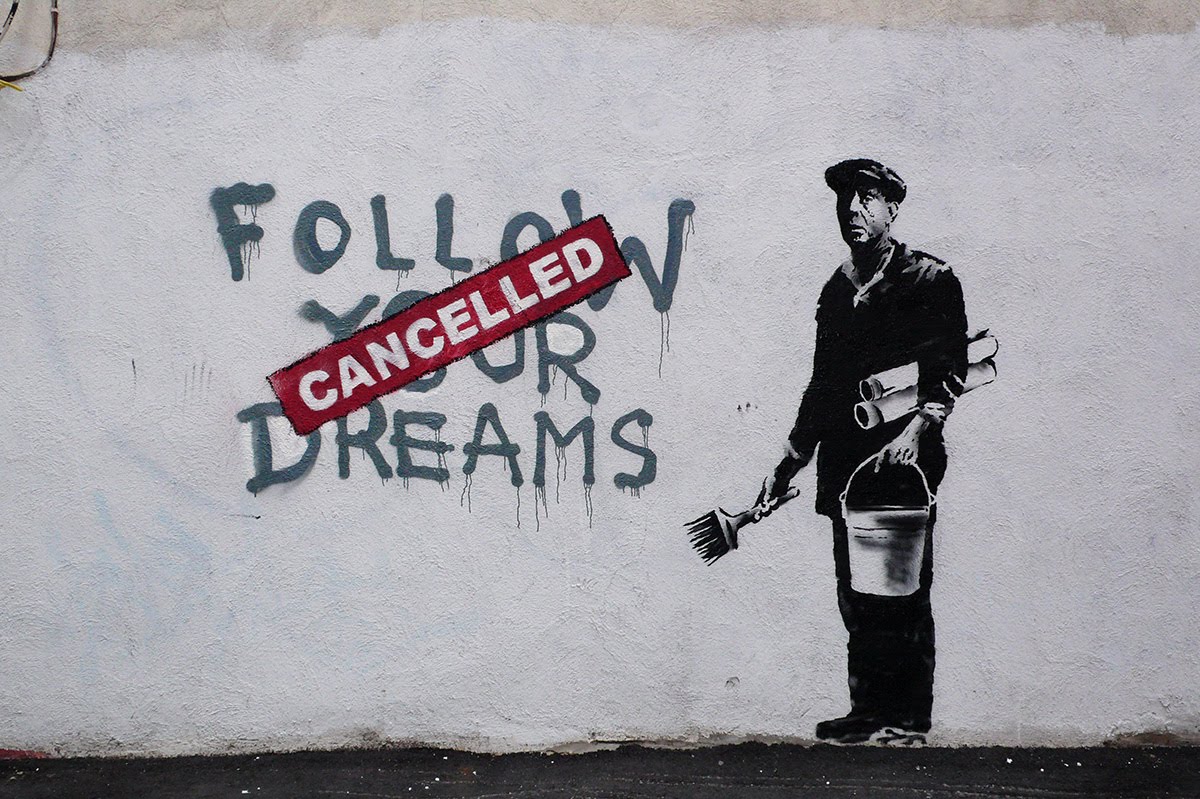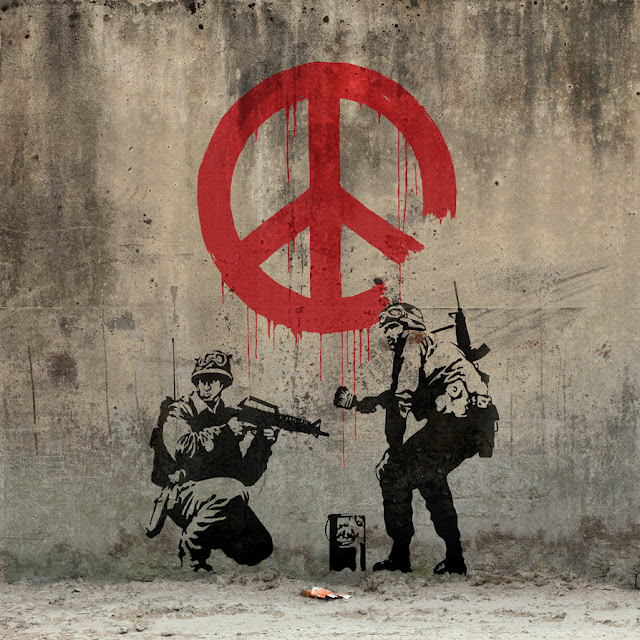

Everyone wants an answer for the violence we have witnessed over the past week. You are not going to get that from me. I may not be the most humble person on the planet, but I’m not delusional enough to think I possess some special insight on how to fix things. Besides, my answer will always be turning to Jesus. From what I can tell, people are no longer satisfied with that response.
What I can tell you is that we are asking too much of too few people. We are asking the police to do too much, we are asking emergency room physicians to do too much, and we are asking politicians to do too much. There are a handful of people suffering on behalf of us all. While it would be convenient to talk about such work as a sacrifice on behalf of humanity, I am more likely to label it as misplaced atonement. Certainly, it has become obvious that we are asking our law enforcement to solve far too many of the problems in any given community. Dallas Police Chief David Brown said as much in a press conference this week:
Not enough mental health funding, let the cops handle it. Not enough drug addiction funding, let’s give it to the cops. Here in Dallas we have a loose dog problem. Let’s have the cops chase loose dogs. Schools fail, give it to the cops. 70 percent of the African-American community being raised by single women, let’s give it to the cops to solve as well. That’s too much to ask. Policing was never meant to solve all those problems. I just ask other parts of our democracy along with the free press to help us.
His comments point to something larger at play. We are expecting the nation’s law enforcement to absolve us of our collective sins. They are not only struggling but failing at that task. Nevertheless, we keep reasoning, if enough new legislation is passed, if enough high-quality police are recruited and trained, then we will have this whole race problem solved.
Would that we could. Alas, to quote Faulkner, “The past is never dead. It’s not even past.” Or if you want something less poetic and more factual, there’s this: On the average, a black man, woman, or child was murdered nearly once a week, every week, between 1882 and 1930 by a hate-driven white mob.
Now, my grandmother was raised by her grandmother in Arkansas. So I am, in effect, a generation away from abject horror–and to be honest with you, one glance at the videos of the murders of Philando Castile and Alton Sterling suggests that I cannot claim even that much distance. I want to tell myself that the Civil Rights Movement remedied all of our country’s problems in one fell swoop. I want to believe that all of that “We Are the World” singing made me colorblind as a child. I want everyone to find something new to talk about because I am white and southern and I really like the way my life has worked out for me. But I know that is not how generations of sin work.
The law will not heal us. Expecting the law to heal us through other people (i.e., the police, lawmakers) is, theologically speaking, dung. Sin will follow. It will haunt us. It will hunt us down until we repent.
Instead, we have developed a system in this country whereby we collectively try to pass the sins of our fathers onto somebody else’s sons. We want the police to deal with our problems. We want the ER doctors to clean up the mess. When in reality, it is you and me, it is we, the sons and daughters who stand in generations of sin, who must fall to our knees in repentance.
https://www.youtube.com/watch?v=M9BNoNFKCBI
Slavery has never been fully repented for. If we actually did want to repent for it, I suspect that it would not look like participating in a march. It would not look like shaming people on social media. If we actually wanted to repent for what has happened to black people in this country, we would give away our houses. We would give away our money. We would give away our whiteness.
But we won’t do that. Because, in many ways, we can’t do that. So then, the question remains, what should we do? I suppose I could give you a “Five Tips for Being Less Racist” list right now, but I feel like the internet has already done that for me. Plus, I am not going to tell you that you need to make more black friends. Black people have enough trouble right now; they don’t need white weirdos trying to make best friends with them at Starbucks. What they need, what we all need, is for you is to be Christian with all that such a calling entails.
During the horror and violence of WWII, Karl Barth said that the best thing he could do was to keep writing about church dogmatics. That is to say, in the face of shameful violence, he would continue to preach the Gospel. I believe that the same thing applies here. We are sinners, born of sinners, born of sinners. We have profited from the enslavement of others. And yet, we know of the Holy One who has atoned for every sin that lies in our past. The overwhelming knowledge of such Gospel truth is the redemption that saves us from this wretched estate.
“It is always the case that when the Christian looks back, he is looking at the forgiveness of sins.” – Karl Barth
https://www.youtube.com/watch?v=ucIAM0nIln8

COMMENTS
9 responses to “Misplaced Atonement”
Leave a Reply













Brilliant, Sarah Condon.
Sarah, I have watched your talks at Mockingbird conferences and read a lot of your posts and they always seemed to me somewhat trendy or like you were trying to hard to be authentic. I apologize for thinking this. If I’m truly honest I think “I dost protest too much,” if you get my drift. Anyway, what you wrote here is so striking and poignant. It truly touched my heart. My need to ramble so desperately wants to say more, but what you have written here is so clear it leaves nothing left to say except, Thank you. Trust in Christ, our only rescue.
The Holy Spirit convicts us of particular sins that we can repent of particularly in order to restore us. Satan accuses, piles on guilt, and seeks to give us a sense of inarticulate condemnation. We can’t put our finger on what to repent of, but just feel guilty, shamed, and condemned. There is a lot of generalized guilt going around with this stuff. A sort of soft law where one person claimed she had determined to read books by all black authors this summer. She was meeting that soft law with her own gospel, and so perhaps she found peace and absolution through her readings. Is that what I’m supposed to do too?
Hard law is God’s law, it’s clear, and objective, and thankfully so is the Gospel! There is an objective justice. A just wrath towards all sin, and so I want nothing to do with God’s justice against sin. I’ll gladly take mercy instead, and this is the great equalizer of all mankind, that in the end, some will receive justice, and some will receive mercy. This is really the love a Christian has for all people. The good news that they can be reconciled to God in Christ.
Brilliant! I love this idea – it is misplaced atonement that wants police and politicians and emergency room workers to solve – no – to stand responsible – for these problems. I’ll be lifting this idea for a sermon at some point! Thanks!
What an incredibly in-sight-full piece. Well done.
“Mississippi Queen, If You Know What I Mean” (Mountain, 1970):
Fantastic Contribution!
Thank you Sarah!
I’ll add my thanks to those who posted. Well done, Sarah.
It’s a good read but it talks too much to that ONLY BLM viewpoint. My question is what happened to the Native American Indian. Certain groups have grown through history using violence to get their way. We are big sinners but we tend to make a quick fix on those who are bullies. We killed a NATION of people. As Obama said his life is better than of his ancestors. We consistently try to make atonement w African American and help the Holocaust Jews get justice. But we ignore our country’s National American Indians. They are peaceful and don’t pick colors or religions to hate. But they are truly mistreated and forgotten. They have no protection and at the same time, I believe they have dignity. I too believe a Christian life can lead to a non violent peaceful life. The hate I see in the protestors is revolting. As Chief Brown said to get out of the protest line and help to mend the problem. People w hate continue. They are like fuel to the fire wanting to explode. I wish Obama would stand up to them and go to the protests and tell them they are destroying the past progress. He could but he won’t. He is afraid of them. Only the police are strong enough to face them. I will continue to say that some lives seem to matter more than others in this country. And the squeaky wheel gets the oil.